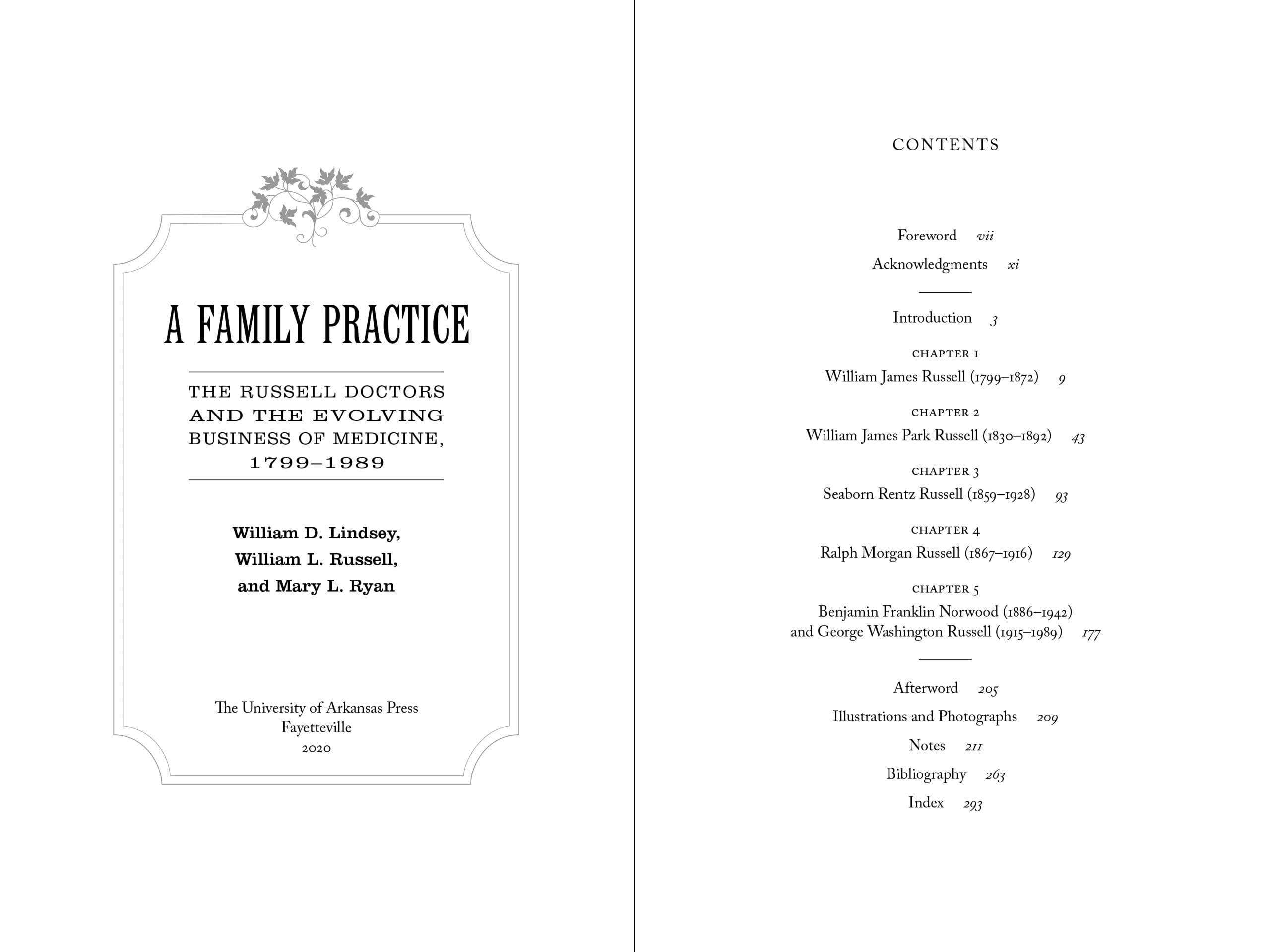Progress in medicine proceeded quite slowly. Certain medical practices, like b
A Family Practice is the sweeping saga of four generations of doctors, Russell men seeking innovative ways to sustain themselves as medical practitioners in the American South from the early nineteenth to the latter half of the twentieth century. The thread that binds the stories in this saga is one of blood, of medical vocations passed from fathers to sons and nephews. As the authors write in the introduction, “this study of four generations of Russell doctors is an historical study with a biographical thread running through it. It emphasizes historical points and employs historiographical techniques as it develops its multi-generational historical biographical study. This study has to employ a wide-ranging optic because it is examining lives whose birth years run from 1799 to 1915, of men who lived in places as diverse as the Carolinas, Georgia, Illinois, Louisiana, Mississippi, Alabama, Arkansas, Texas, Pennsylvania, and New York.”
The authors of A Family Practice take a wide-ranging look at the meaning of intergenerational vocations and the role of family, the economy, and social issues on the evolution of medical education and practice in the United States. The book is now available at 25% off when you order at uapress.com


